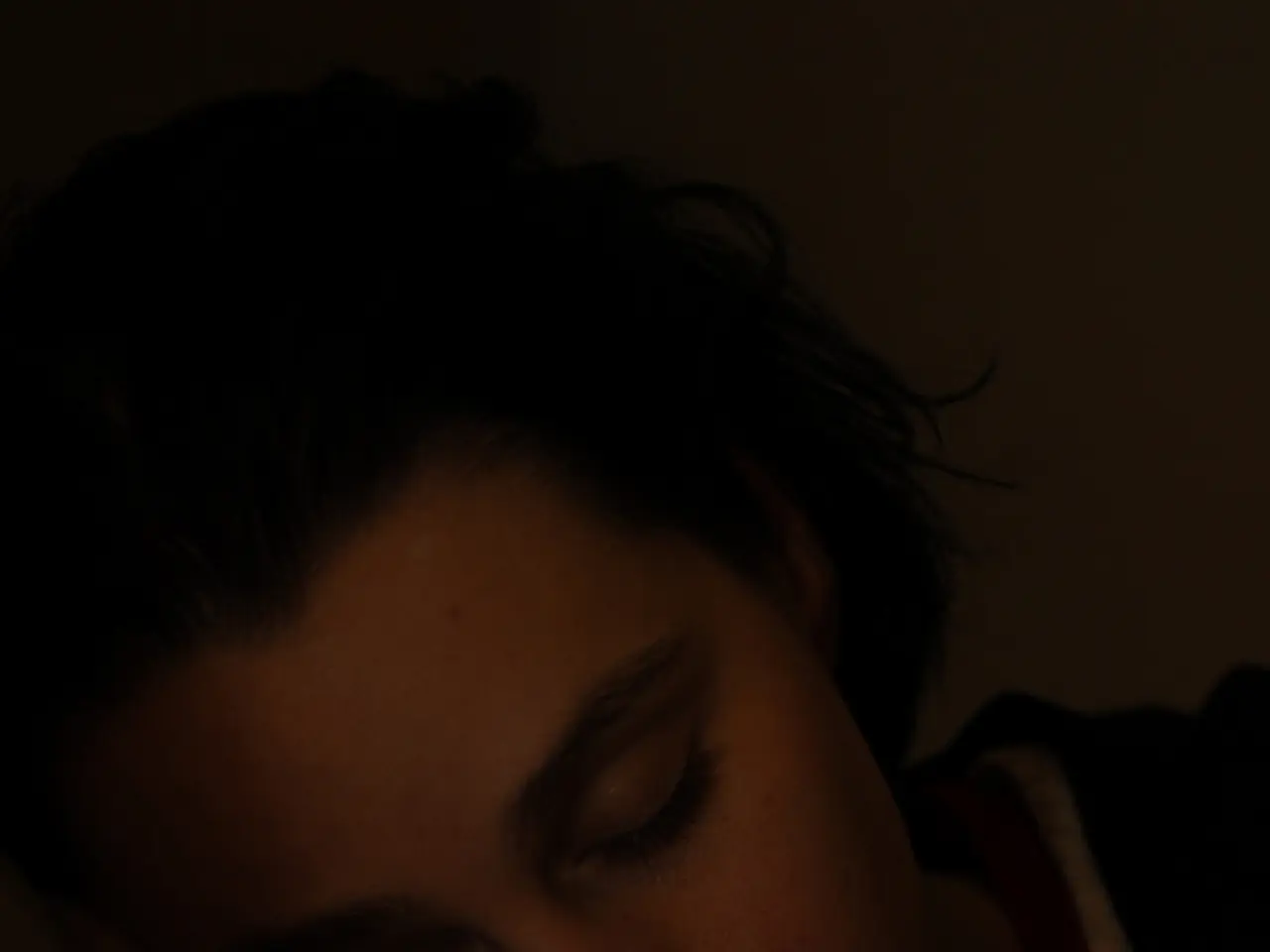Adjust Your Rest Patterns: A Guide to Resetting Your Sleep Routine
A good night's sleep is essential for maintaining overall health and well-being. However, disruptions to sleep schedules can occur due to various factors. This article aims to provide a helpful guide on how to fix a sleep schedule effectively.
First and foremost, it's crucial to address the issue as soon as it arises and be disciplined in enforcing positive new habits. Adults generally require 7 to 9 hours of sleep each night, and maintaining this sleep duration is vital for restorative sleep.
One common cause of sleep disruptions is exposure to artificial light, which can affect the body's circadian rhythm. Limiting the use of devices that emit blue light for at least an hour or two before bed can help regulate sleep naturally.
External factors such as noise, light, room temperature, poor sleep hygiene, and dietary mistakes, excessive nicotine, caffeine, or alcohol consumption, and psychoactive substances can also contribute to sleep problems. Internal factors like sleep-related breathing disorders, hormonal changes during puberty, pregnancy, or menopause, disruptions to circadian rhythm due to jetlag or shift work, psychological or neurological disorders, and sleep-related movement disorders can also impact sleep patterns.
Sleep cycles last approximately 90 to 100 minutes and consist of four phases. It's essential to ensure that you're getting a full cycle by going to bed and waking up at consistent times.
Avoid relying on quick fixes such as pulling all-nighters, as they can cause ongoing problems for the circadian rhythm. Similarly, going to lots of late-night events over a long period can lead to sleep issues.
Working a job with irregular shift patterns can also disrupt sleep schedules. If you find yourself in this situation, try to maintain a consistent sleep schedule on your days off to help regulate your body's internal clock.
Jet lag from travel can throw off a person's sleep schedule. If anticipating sleep disruptions, try gradually adjusting your sleep schedule before the event to ease your body into the new pattern.
As we age, sleep patterns can change, and lower-quality sleep is one of the signs of aging. A healthcare professional can help find solutions based on age and lifestyle.
Welcoming a new baby into the family can cause sleep disruptions. Establishing a consistent bedtime routine and creating a sleep-conducive environment can help promote better sleep.
Stress, anxiety, depression, or any similar mental health issues can impact sleep patterns. Addressing the root causes can help promote a better nighttime routine.
Melatonin supplements can help signal the brain to sleep, but they may cause side effects like drowsiness, headaches, nausea, dizziness, and fatigue. Consult a healthcare professional before use.
Eating and drinking too close to bedtime, particularly with alcohol, can disrupt sleep due to gas, indigestion, and shallower, lower-quality sleep. It's best to finish eating and drinking several hours before bedtime.
In conclusion, fixing a sleep schedule requires patience, consistency, and a commitment to healthy habits. By understanding the causes of sleep disruptions and addressing them effectively, you can improve your sleep quality and overall health. If you're experiencing persistent sleep issues, consider consulting a healthcare professional for personalised advice.
Read also:
- Postpartum Period and Gestational Diabetes: Does it Persist?
- Controlled spree of Legionnaires' disease among Harlem residents ceased, city health authorities confirm; however, locals push for increased openness and information disclosure
- Transform City for the Better
- Prostate Cancer Examination Guidelines, Outcomes, and Financial Aspects







